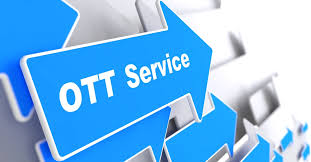- July 11, 2018
- Posted by: admin
- Category: Blog, News

The Internet Society Uganda Chapter is concerned with the recent enactment of laws that are retrogressive to the growth of the Internet economy in the Uganda. These tax regimes will undermine Uganda’s digital economy and negatively affect Ugandan’s rights online. The Internet Society Uganda Chapter appeals to the government to reconsider its decision.
On 30 May 2018, the Ugandan parliament passed the Excise Duty (Amendment) Bill 2018, which, among others, provides that “A telecommunication service operator providing data used for accessing Over The Top services (OTTs)[1] is liable to account and pay excise duty on the access to over the top services.” Accordingly, this law targets OTT services, that are commonly used by masses including social media applications such as WhatsApp, Facebook or Twitter, which will be subject to a tax duty of UGX 200 (USD 0.05) per user per day of access.
The new tax which came into effect on July 01, 2018 has been received with reservations and concerns raised by stakeholders, including technology institutions in Uganda. Despite this, the Ugandan President announced that the country will go ahead to implement the new law.
We call upon his Excellency to consider the issues raised and reverse this tax. In its current form, the tax is regressive to the country’s efforts in growing the Internet economy. While we recognize that the Government has an obligation to develop robust Internet infrastructure in hard to reach areas, a double taxation on OTTs doesn’t offer satisfactory solutions of the issues at hand. Studies have shown the relationship between high taxation on ICTs and decline in use and stifling innovations. Instead, efforts should focus on fostering more competition, innovative use of spectrum, investment in local startups, and boosting local content online.
Social media platforms in Uganda also represent one of the main entry points to the Internet experience. These are channels people use to freely express themselves, exchange opinions and ideas and get access to information and knowledge. Therefore, imposing a disproportionate tax on the use of social media directly impacts the ability of citizens to exercise their fundamental rights.
The Internet is a critical enabler of economic growth and opportunity. In Uganda, the applications and services powered by the Internet have accelerated economic growth and created jobs. Small businesses, in particular, have used the Internet to deliver economic growth into their local communities, harnessing it to overcome traditional barriers such as lack of access to education or skills, and exporting their products and services to national and international markets.
At low-cost, and at-scale, the Internet has empowered historically marginalized people, including those in regional environments and in conflict zones, with the ability to create and finance businesses, to collect payments, and to receive and disseminate knowledge. But this is just one piece of the puzzle. Sub-Saharan Africa is increasingly integrated in the global economy and Uganda was one of the first countries to align its national development plans in line with the U.N. Sustainable Development Goals. Increasing the cost of Internet use stifles these longer-term objectives.
“With the new tax, it is inevitable that OTTs will pass the tax burden on to user. This decision will disproportionately and negatively impact the ability of users in Uganda to gain affordable access to the Internet, and thus unduly restricts their right to freedom of expression,” said Lillian Nalwoga, President of the Internet Society Uganda Chapter.
The cost of access is very important. As noted by the UN Broadband Commission and research by the Alliance for Affordable Internet (A4AI), access that costs greater than 5% of average monthly income is unaffordable and thereby reduces both access and usage. In Uganda, A4AI estimates that “with the excise duty in place, this cost to connect for Uganda’s poorest will jump by 10%, resulting in just 1GB of data costing them nearly 40% of their average monthly income” up from the current cost of 15% of an average monthly income.
In May 2018, the African Internet technical community made a decision to host the 2019 premier African Internet Summit in Kampala, following the remarkably developments the government is doing to grow the Internet Infrastructure in Africa. This tax decision sends a wrong message and shakes the trust of the community in the government’s plans for the digital future in Uganda and Africa.
“Uganda can play a leadership role in setting the tone for Africa’s digital future. We urge the Government to engage with local stakeholders and to find alternative solutions to foster digital growth in ways that do not hurt the people who need access to the Internet the most,” said Dawit Bekele, Regional Bureau Director for Africa, Internet Society.
The Internet Society Uganda Chapter calls on the government to engage with the Internet community and to utilize a collaborative and multi-stakeholder approach in making decisions that impact the Internet. The Chapter supports the growing calls for the government of Uganda to reverse its actions that harm free speech and open access to the Internet and to extend an invitation to the vibrant local Internet community to consult further on issues affecting Uganda’s digital future.
[1] OTTs are applications and services, which are accessible over the Internet and ride on Operators’ networks offering Internet access services, such as social networks and sites.
*Photo credit: Gitty Images

